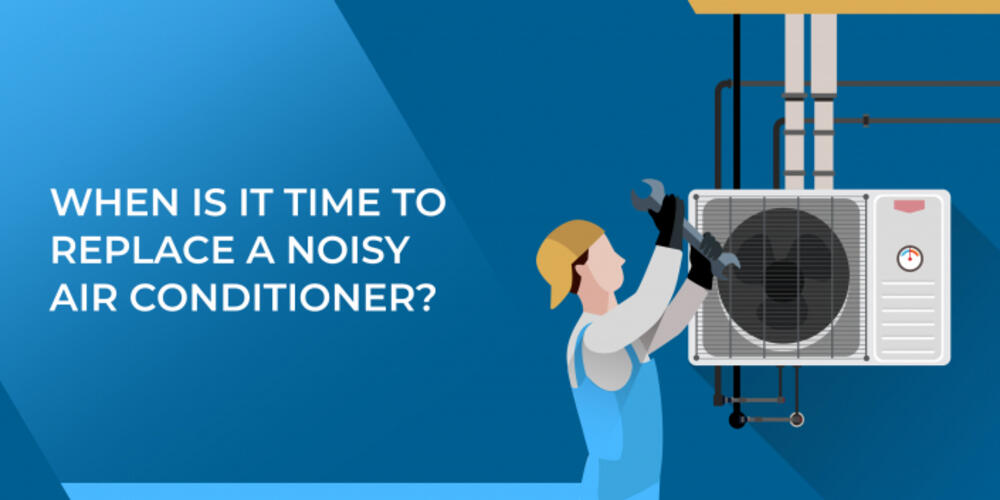
An air conditioner (AC) is an essential appliance for maintaining comfortable indoor temperatures in homes and offices. While most AC systems operate quietly, unusual noises can signal issues that require immediate attention. Ignoring these sounds may lead to costly repairs or even total system failure. This guide explores six concerning AC noises, their potential causes, and what actions you should take.
1. Banging or Clanking Sounds
What It Means:
Banging or clanking often indicates a loose or broken part within your AC’s compressor or fan assembly. These parts might have come loose due to wear and tear, causing them to knock against each other or the system’s casing.
Why It’s Concerning:
Ignoring this noise can exacerbate the damage, potentially leading to a complete compressor breakdown—a costly component to replace.
What to Do:
Turn off the AC immediately and contact a qualified HVAC repair technician. Delaying repairs could result in further internal damage.
2. Hissing or Whistling Noises
What It Means:
A hissing sound could indicate a refrigerant leak or a problem with the air duct system, such as a loose connection or punctured duct. Whistling noises are typically linked to high internal pressure within the compressor.
Why It’s Concerning:
Refrigerant leaks harm the environment and reduce the system’s cooling efficiency. Meanwhile, excessive internal pressure poses a safety hazard, potentially causing system failure.
What to Do:
Refrigerant leaks require professional diagnosis and repair. For high-pressure concerns, shut off the unit and consult an HVAC expert immediately to prevent accidents.
3. Grinding Noises
What It Means:
Grinding often points to worn-out bearings or motor issues. It may occur when the blower motor components are misaligned or experiencing excessive friction.
Why It’s Concerning:
Allowing grinding noises to persist can cause severe motor damage, leading to more expensive repairs or a total system replacement.
What to Do:
Organize a professional evaluation to uncover the main cause. Regular maintenance and lubrication can prevent this issue from recurring.
4. Buzzing or Electrical Crackling
What It Means:
Buzzing sounds may stem from loose electrical connections, damaged wiring, or issues with the motor. Electrical crackling, on the other hand, can indicate a short circuit or damaged capacitor.
Why It’s Concerning:
Electrical problems not only affect your AC’s performance but also pose serious safety risks, including fire hazards.
What to Do:
Switch off the unit and disconnect it if feasible. Call a licensed HVAC technician immediately to address the issue safely.
5. Squealing or Screeching Sounds
What It Means:
Squealing noises often result from a misaligned or worn-out belt in older AC models. Alternatively, screeching could signal motor problems or a failing fan blade.
Why It’s Concerning:
While not immediately dangerous, prolonged operation under these conditions can lead to system inefficiency or permanent motor damage.
What to Do:
Schedule repairs to replace the worn-out parts. Upgrading to a newer AC model without belts can prevent this issue in the future.
6. Rattling or Vibrating Noises
What It Means:
Rattling noises are usually caused by loose screws, debris inside the unit, or components that are not secured properly. Vibrations might indicate that the AC is not installed on a stable surface.
Why It’s Concerning:
While these noises might seem minor, they can worsen over time, causing wear and tear on other parts of the system.
What to Do:
Inspect the external unit for loose screws or debris. If the problem persists, consult an HVAC professional for a detailed evaluation.
Preventive Tips to Avoid Noisy AC Issues
1. Regular Maintenance: Schedule annual inspections and tune-ups to keep your AC running efficiently.
2. Change Filters Frequently: Clogged filters can strain the system, leading to unusual noises.
3. Keep the Area Clean: Clear debris from around the outdoor unit to prevent rattling or vibrations.
4. Upgrade When Necessary: Consider replacing older systems with energy-efficient models equipped with noise-dampening technology.
When to Call a Professional
While some noises might seem manageable, most require the expertise of an HVAC technician – service ac jakarta. Timely intervention can save you money, extend the lifespan of your system, and ensure safety.
If you’re experiencing any of the noises mentioned above, don’t wait for the problem to escalate. Contact a trusted HVAC repair service today to restore your AC’s performance and peace of mind.
By staying vigilant and addressing issues promptly, you can ensure that your air conditioner keeps your home or office comfortable for years to come.





Leave a Reply